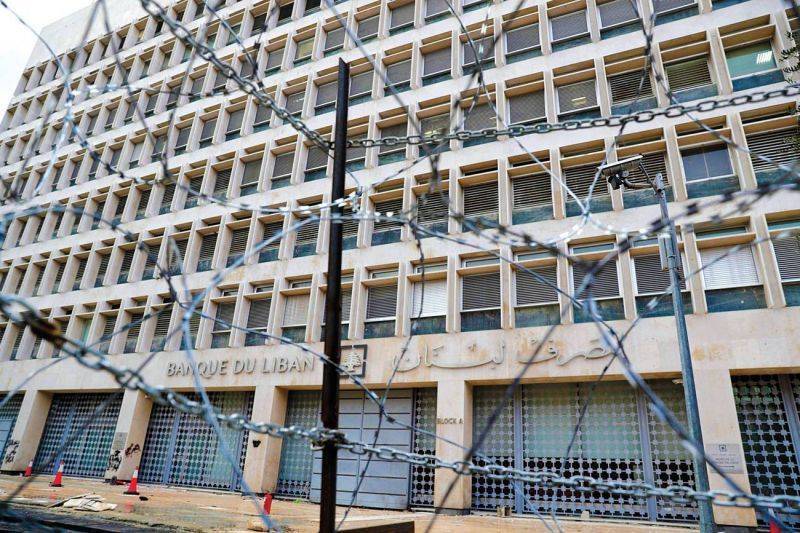
Riad Salameh has headed BDL for over 27 years. (Credit: Anwar Amro/AFP)
BEIRUT — The central bank only holds some $17.5 billion in hard currency reserves, Gov. Riad Salameh said Friday, all but confirming a one-month countdown to the end of subsidies on vital goods.
In two separate interviews with France 24, one in English and another in French, Salameh also admitted for the first time that his signature policy — the Lebanese lira’s peg to the US dollar — “is finished,” some 18 months after it first began to unravel.
Salameh, who has been at the helm of Banque du Liban since 1993, alluded that the central bank is only half a billion dollars away from reaching the threshold of mandatory reserves, which stand at about $17 billion.
The governor has previously insisted that he would not touch the mandatory reserves, claiming to be protecting money that ultimately belongs to depositors at Lebanese banks. If he holds to that position once non-mandatory reserves are exhausted, it will mean no funds will be available to continue subsidizing imports of essential goods such as fuel, wheat and medicine.
The Lebanese economic model is largely reliant on imports, as previous governments failed to invest in or develop a system that would encourage local production and investment.
Under the current subsidy program, the central bank provides importers of wheat, fuel and medicine with dollars at the official peg of LL1,507.5 and certain other goods at the rate of LL3,900 to the dollar. This program costs BDL around $540 million per month, according to the Economy Ministry.
It has helped keep the cost of essential goods relatively affordable, but has been criticized for primarily benefiting the wealthiest and smugglers.
Those without access to the central bank’s subsidy program must buy dollars at the far more expensive market rate, currently over LL8,500.
If subsidies end, BDL’s special exchange rates will cease to have any impact for the vast majority of the economy, leaving only the market rate — and therefore leading to massive price rises.
When subsidies end, “the peg will mainly only be relevant for a limited set of operations within the banking sector, such as conversions to and from dollars and lira for purposes of loan repayments or deposits,” according to Mike Azar, a financial adviser and commentator.
Essentially, the end of the peg, just as Salameh told France 24 on Friday.
The governor also said, however, that the lira should only be floated once an agreement with the International Monetary Fund is reached.
Yet any IMF bailout remains far in the future. Talks with the fund grounded to a halt in July following disputes over the size of the country’s financial losses. The government, which was reporting LL186 trillion losses in the banking sector — a figure endorsed by the IMF — was met with pushback from BDL, banks and Parliament’s Finance and Budget Committee, which had sought to minimize losses.
“The IMF negotiations that began last summer were thwarted in part by BDL’s stonewalling by refusing to acknowledge its balance sheet losses,” Azar said.
A former official close to the negotiations also laid blame with the governor. “Riad Salameh did not want an IMF deal because it would expose the central bank losses,” the source said on condition of anonymity.
Chances of restarting negotiations became even slimmer after forensic auditors Alvarez & Marsal — a prerequisite to unlock any IMF package — walked away from a deal with the government, citing BDL’s refusal to hand over the required information.
While it is unclear whether the auditing contract could be revived under the current caretaker government, negotiations with the IMF almost certainly cannot. A new cabinet would need to be formed — a monthslong process as the political elite fight over slices of the pie.
“As it stands today, we are back at square one except with much less in foreign currency reserves, which is the worst-case scenario,” Azar said.